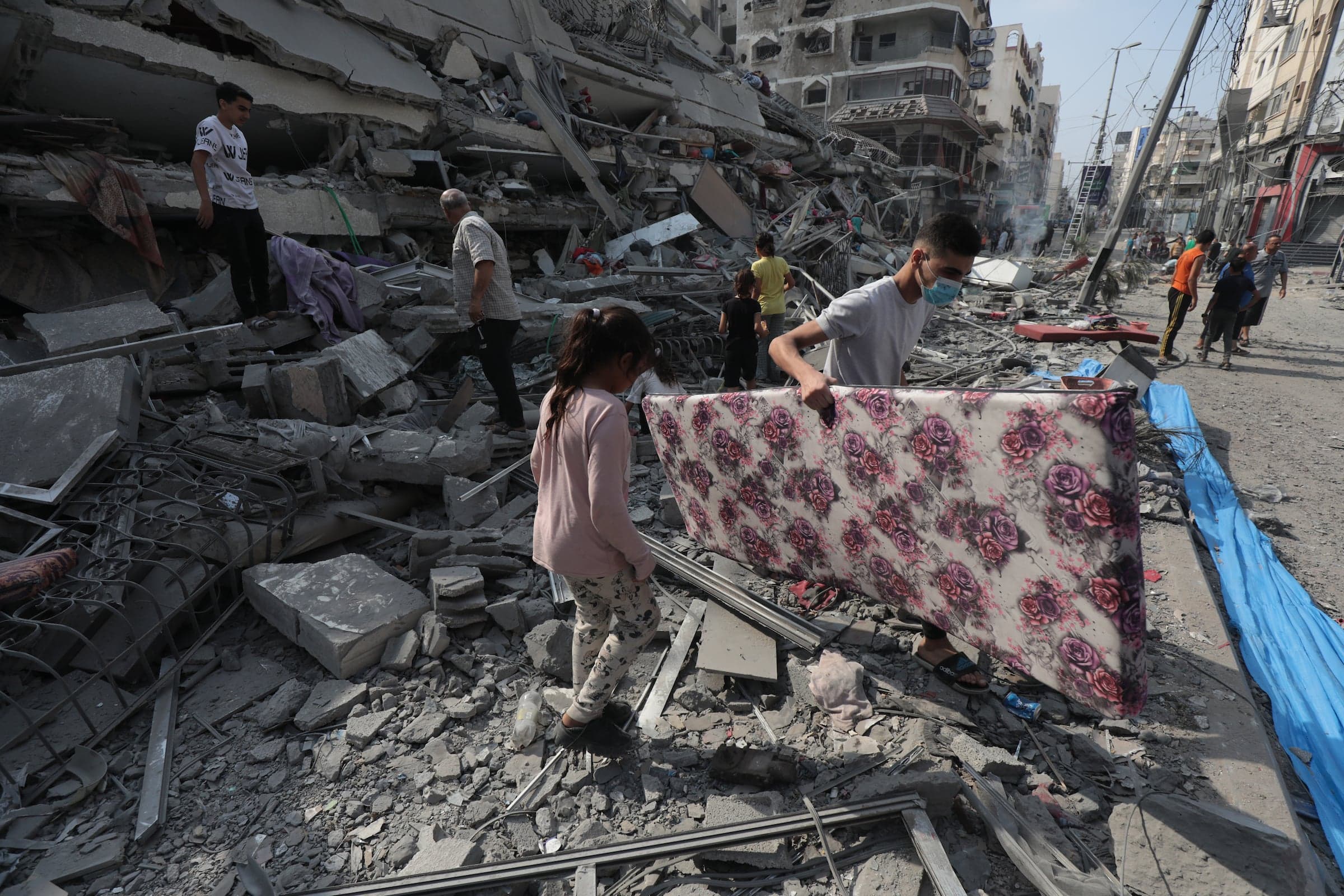We're loading the full news article for you. This includes the article content, images, author information, and related articles.
With over 1.5 million displaced Palestinians in makeshift shelters, aid agencies warn of mass casualties from cold and disease as heavy rains overwhelm Gaza's destroyed infrastructure, a crisis with profound implications for global humanitarian law and regional stability.

International aid organizations have issued stark warnings of an impending humanitarian catastrophe in Gaza as the first winter storms batter the besieged enclave. Heavy rainfall, beginning Friday, November 14, 2025, has flooded makeshift camps, turning them into uninhabitable swamps of mud and sewage. With nearly 1.5 million people displaced and living in flimsy, damaged tents, the onset of winter threatens to exact a heavy toll from hypothermia and the rapid spread of infectious diseases. The International Organization for Migration (IOM) reported in early January 2025 that at least seven infants had already died from hypothermia, underscoring the lethal conditions.
The core of the crisis lies in the catastrophic lack of adequate shelter. According to the UN and the Shelter Cluster, a coordination body for humanitarian shelter response, approximately 1.5 million people, or 260,000 families, are in urgent need of emergency shelter and winterization supplies. More than 80% of all buildings in Gaza have been damaged or destroyed, forcing the vast majority of the population into overcrowded displacement sites. Compounding the suffering, Israeli authorities continue to impose severe restrictions on the entry of humanitarian aid. The Norwegian Refugee Council (NRC) reported on November 5, 2025, that millions of essential items, including tents, thermal blankets, and sealing kits, are stuck in Egypt and Jordan awaiting approval to enter Gaza. Natalie Boucly, a deputy commissioner general for the UN Relief and Works Agency (UNRWA), stated on November 15, 2025, that Israel's restrictions are a breach of international law and that only about half of the required 500-600 daily aid trucks are getting through.
The flooding has mixed with Gaza's collapsed sewage systems, creating a breeding ground for waterborne diseases. Gaza's Ministry of Health spokesperson, Khalil Al-Dakran, warned on Sunday, November 16, 2025, that the mixing of wastewater with drinking water poses a severe risk of epidemics. Medical points established after the October 10, 2025 ceasefire have been forced to cease operations as tents were blown away or flooded. Health organizations have already documented a massive rise in respiratory infections, diarrhea, skin conditions like scabies, and chickenpox, particularly among children under five. With 94% of Gaza's hospitals damaged or destroyed, the capacity to handle a surge in weather-related illnesses is virtually non-existent.
The crisis in Gaza resonates within the international community, including Kenya. While not directly impacted, Kenya has a history of participating in global peacekeeping and humanitarian efforts. President William Ruto has recently reaffirmed Kenya's long-standing support for a two-state solution and expressed readiness to contribute to peace initiatives. In a parliamentary debate on August 6, 2025, Kenyan MPs strongly condemned the humanitarian situation, urging immediate international action. However, Kenya's diplomatic actions have been described as inconsistent, having abstained from a UN resolution in September 2024 calling for an end to the Israeli occupation, while previously voting in favor of humanitarian truce resolutions. The escalating crisis puts pressure on nations like Kenya to adopt a clear and consistent stance on upholding international humanitarian law. The stability of the wider Middle East, a region with significant economic and security ties to East Africa, is also at stake. Continued conflict and humanitarian disaster risk further radicalization and regional destabilization, a concern for Kenya, which has previously been the target of terrorism linked to regional grievances.
Humanitarian leaders are unequivocal in their demands. Jan Egeland, Secretary General of the NRC, stated, "We are going to lose lives this winter. Children, families will perish." Aid agencies are calling for an immediate and unimpeded flow of all necessary supplies, including shelter materials and fuel for water pumping and sanitation. They also stress the urgent need for heavy machinery to clear the estimated 55 to 60 million tonnes of rubble, which currently prevents the safe installation of even temporary shelters. Without swift international intervention to lift the aid blockade and address the dire conditions on the ground, Gaza's displaced population faces a winter of unprecedented suffering and death.
Keep the conversation in one place—threads here stay linked to the story and in the forums.
Sign in to start a discussion
Start a conversation about this story and keep it linked here.
Other hot threads
E-sports and Gaming Community in Kenya
Active 9 months ago
The Role of Technology in Modern Agriculture (AgriTech)
Active 9 months ago
Popular Recreational Activities Across Counties
Active 9 months ago
Investing in Youth Sports Development Programs
Active 9 months ago